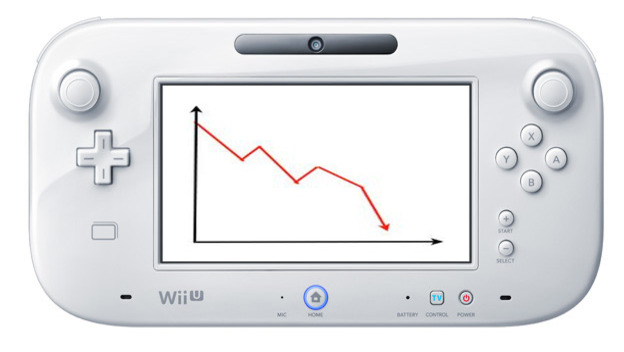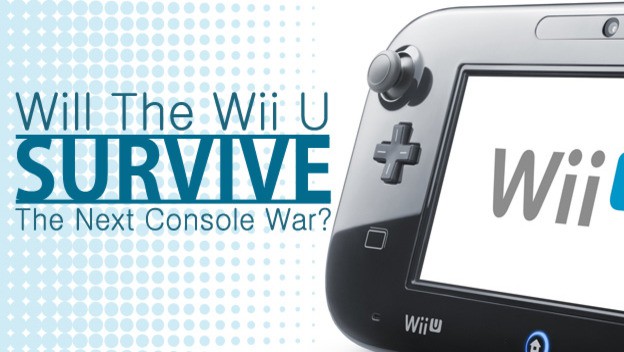The Wii U has been on the market only a few months, the PS4 won’t be launched until the end of the year, and we still don’t have an official announcement on the next Xbox. Yet the Wii U is already projected to lose the next-gen console war. This is baffling to me.
Now, I’m not here to claim the Wii U will emerge victorious; only time will be the judge of that. What I can do is explain its advantages and expose its weaknesses, and extrapolate a bit about what that means for the future.
The biggest advantage the Wii U has is time. With a full year on the market to build an audience before the PlayStation 4 launches, and the beginning-of-the-year vacation now over, Nintendo needs to push software onto its new platform. We’re still waiting to see whether LEGO City Undercover and Monster Hunter 3 Ultimate gave March sales a decent push, but Nintendo needs to keep the games coming. That’s proving to be easier said than done with third-party support dwindling. Until confidence returns, Nintendo will have to promote its own franchises. Of course, if any company can survive on the back of its first-party brands, it’s Nintendo. With Pikmin, Mario, and Zelda titles all launching this year, there are plenty of opportunities to put Wii Us into homes.
Thanks to Sony (and likely Microsoft) going power-hungry with their next consoles, Nintendo should stay afloat in the third-party pool for a while. Although a few bigwig developers are going to try to push the boundaries of the new machines, most companies will remain with their current programming setups until the higher quality material is demanded by gamers. Thus Nintendo should be part of the multiplatform club for at least a couple of years. Afterwards, however, is where the Wii U’s relevance may start to slip. Developers expended resources to produce watered-down Wii games because the system sold like crazy. The Wii U will have to enjoy the same success or it will be left behind for many future AAA titles.
This leaves Nintendo with a couple of options down the road. The shelf life of the Wii U’s current format may not last as long as Nintendo hopes. If there is a new console a short way down the road, I personally I would like to see the GamePad remain. The tablet/traditional amalgamation is more than a novelty, and many interesting and fresh gameplay experiences are bound to emerge with more experimentation by developers.
I have a feeling Nintendo shares my sentiment, which is why I believe the Wii U will follow the same path as the DS family. I expect the current home console model to only last two to three years. The upgraded design would still retain the GamePad and all the Wii U features, but have a GPU more on par with the other consoles, and by then the production costs should still be within Nintendo’s target price. Another thing that would have to be included in such an upgrade is a bigger hard drive. With Nintendo trying to promote digital downloads, their solution of purchasing an external hard drive shouldn’t be a burden placed on the consumer.
Of course, this is all speculation, but it’s a prognostication that Nintendo should be aware of if the Wii U is not able to sustain sales and third-party developers due to its technical limitations. But ultimately the Nintendo faithful shouldn’t be too concerned. Even with a desire to woo more mature gamers with M-rated titles, the Big N will always appeal to an audience that Sony and Microsoft never seem to spend much time marketing for.

Also, remember that although Nintendo has some hurdles to overcome, Sony and Microsoft won’t be without their own issues. I for one hope they all succeed and the war is a stalemate. After all, why wouldn’t we as gamers want as many options as possible to satiate our massive appetites?
 | By Sean Engemann Contributing Writer Date: April 10, 2013 |
